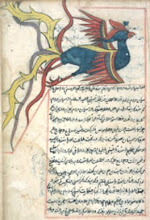Winter Breathing
1
Knowing well the wakening moments, morning
forming in front of my eyes, like some summer
evening after a humid nap, I embrace
the promise of another day with cool breeze.
Time was, I would have looked out of the window
with the dubiety that anticipates,
through the blustery trees, a southerly wind
channelled up from Bass Strait and off the snowfields.
Now, today is almost still, only a thin
abstraction of a breeze stirring the palm leaves
in what is an almost desultory way,
and, in the distance, the horizon is white.
No more cutting off the west with a hearty
escarpment, no more land then blue so brilliant
that eyes water, that little children can dream
that this city is at the edge of the world.
2
When the evening draws in, when the sun hangs low,
I look out on the winter day and think,
not on what I could have done to make better
this world, but with warm gratitude for this day.
The evening, as it breathes in me, will shelter
the world towards night and, for many, some sleep
in a bower, or a den, or nest, or bed,
and I think of so many hearts that beat slow.
I may turn off the lights, listen for night-birds
with my melting ice diluting my whisky
that grows steadily warmer with my palm's warmth,
and is not stirred by the thought of reflection.
And when I sometimes raise my glass to my lips,
I may momentarily remember smiles,
and, in doing so, lay my heart open-faced
to a mirror made of rue and reflection.
- Phillip A Ellis 2010
Snow
Colder than heart's thought,
it seems we're human,
but we are nothing
more than a shadow,
cast by a wan light
fading from attics
- Phillip A Ellis 2010








